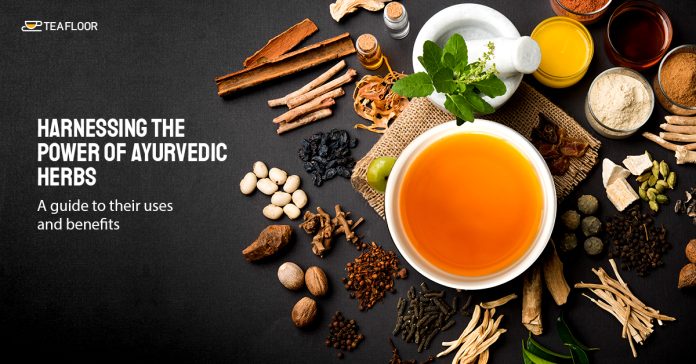Estimated reading time: 0 minutes
In the domain of remarkable biological phenomena, the regenerative capabilities of certain animals have captivated the curiosity of scientists and the general public alike. While humans may not have the ability to regrow lost limbs like starfish or tails like salamanders, recent scientific advancements are challenging the conventional wisdom that our regenerative potential is limited. It appears that the food we consume plays a crucial role in activating the body’s inherent healing mechanisms.
At the heart of this discovery lies the profound influence of diet on the activation of stem cells, the unsung heroes of our biological makeup. Stem cells possess a remarkable ability to transform into specialized cells, serving as the body’s repair system, and offering the foundation for healing and regeneration.
Understanding the Role of Stem Cells in Human Regeneration:
Stem cells play a vital role in replenishing tissues and organs throughout our lives, although the extent of human regeneration may not include growing entirely new limbs. Nevertheless, our bodies engage in subtle acts of regeneration daily, such as the regrowth of hair, healing of skin wounds, and the restoration of the liver from damage. These ongoing renewal processes highlight the potential within us, a potential profoundly influenced by our dietary choices.
The Impact of Nutrition on Stem Cell Health:
The connection between diet and stem cell activation underscores the adage “you are what you eat.” Research has revealed that specific diets, notably the Mediterranean diet, rich in antioxidants, healthy fats, and whole foods, can stimulate the proliferation of stem cells. This diet, celebrated for its abundance of fruits, vegetables, nuts, and olive oil, has been shown to increase the number of stem cells in the bloodstream, contributing to improved health and enhanced regenerative capacities.
Foods That Foster Regeneration:
Notably, certain foods have been identified for their ability to boost stem cell activity. For instance, green and black teas, beyond offering relaxation and antioxidants, can double the number of stem cells, promoting cardiovascular health and overall systemic regeneration. Surprisingly, dark chocolate, thanks to its cacao flavonols, can have a similar effect, increasing stem cell numbers, enhancing blood flow, and aiding the body’s natural repair processes.
Beyond Nutrition: Lifestyle Factors in Stem Cell Health:
While nutrition plays a pivotal role, other lifestyle elements, such as alcohol consumption, stress management, and metabolic health, also significantly impact stem cell function. Moderation in alcohol intake, effective stress coping mechanisms, and maintaining stable blood sugar levels are crucial for preserving optimal stem cell health, ultimately influencing the body’s capacity for healing and regeneration.
Understanding Regeneration through Ayurveda:
Ayurveda, the ancient Indian system of medicine, recognizes the importance of balance among the three doshas—Vata, Pitta, and Kapha—for overall health and vitality. In alignment with modern scientific insights into the body’s regenerative capabilities, Ayurveda acknowledges the body’s potential for self-renewal, a process profoundly affected by diet and lifestyle.
The Role of Diet in Stem Cell Health:
Ayurveda introduces the concept that each food item possesses its own pranic energy, capable of either harmonizing or disturbing our doshic equilibrium. This energy, when attuned to our individual constitution, supports the body’s natural healing mechanisms, including stem cell activation. Ayurveda advocates for fresh, organic, and spice-infused foods, considered highly nourishing and rejuvenating.
Ayurvedic Foods That Foster Regeneration:
Among Ayurvedic recommendations, herbal teas tailored to an individual’s dosha are advocated for balancing the doshas. For instance, warming spices like ginger are recommended for Vata types, while cooling herbs like mint benefit Pitta individuals. Similarly, dark chocolate, rich in antioxidants, aligns with Ayurvedic principles that prioritize natural, minimally processed foods for health. Moreover, Ayurveda emphasizes collagen-rich foods, such as bone broth and organ meats, in moderation, to support tissue health and integrity, as well as overall regeneration.
Ayurvedic Approaches to Enhancing Regeneration:
Ayurveda emphasizes a dosha-balancing diet tailored to individual constitutional types, optimizing health and augmenting the body’s regenerative potential. This includes selecting foods that pacify dosha imbalances and nourishing deficiencies within the body. Ayurvedic detoxification, particularly Panchakarma, is recommended to eliminate toxins (ama) that may obstruct the body’s innate healing processes. Certain Ayurvedic herbs, including Ashwagandha, Turmeric, and Guduchi, known for their regenerative properties, can support stem cell health by reducing inflammation, combating oxidative stress, and enhancing overall vitality.
Conclusion: A Harmonious Approach to Regeneration:
Reconsider the potential of food not merely as sustenance but as a potent agent for healing and regeneration. By making informed dietary choices and embracing a lifestyle that nurtures stem cell health, we unlock our body’s natural regenerative capacities, offering new avenues for disease prevention, health optimization, and longevity.
As science continues to uncover the intricacies of human biology, the intricate connection
between diet and regeneration emerges as a promising frontier in the field of medicine. It emphasizes the profound influence of our daily decisions on our health and well-being, heralding a future where food is not just nourishment but a key to unleashing our inherent healing abilities.
Integrating Ayurvedic wisdom with contemporary nutritional science presents a holistic strategy to support the body’s natural regenerative potential. By adopting a diet and lifestyle aligned with both modern research and ancient wisdom, individuals can activate their body’s innate healing powers, paving the way for enhanced health and an extended lifespan. As we delve deeper into the synergies between Ayurveda and modern medicine, the potential for preventative health and natural healing becomes increasingly apparent, reaffirming the timeless significance of Ayurvedic nutrition on our journey toward holistic well-being.”
Related –
Know more about Digestive & Gastroentric Ayurveda Treatments.Get help from the right experts.
GET IN TOUCH


Recent comments